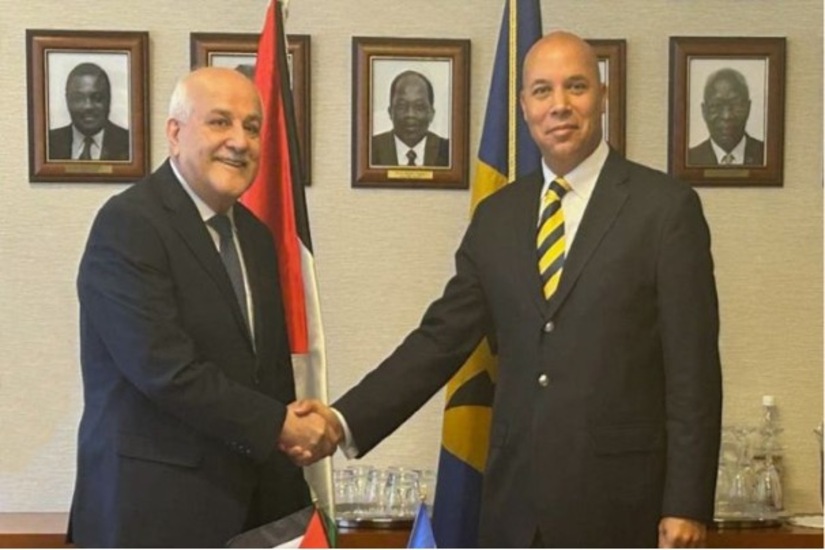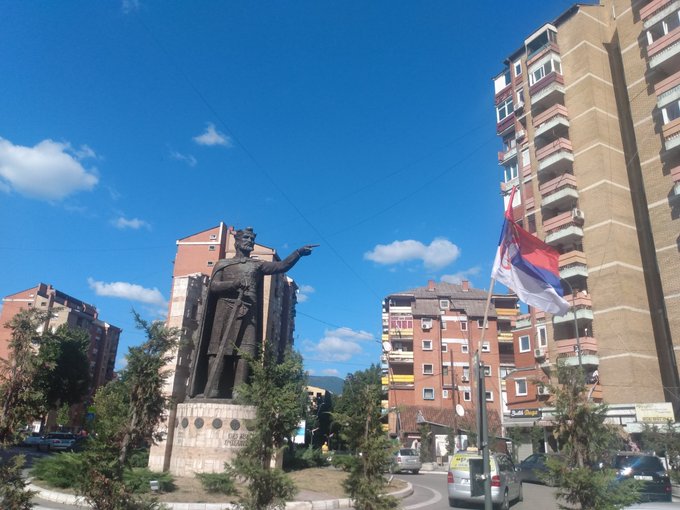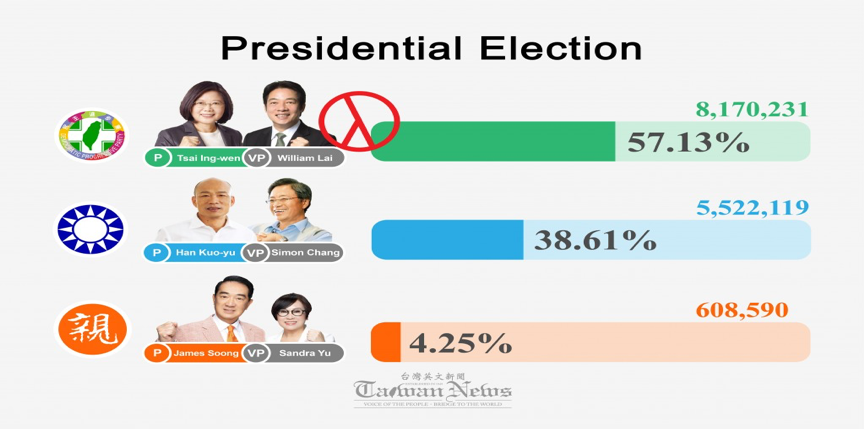Aslan Bzhania: Dialogue with Georgia with No Geopolitical U-turns
Aslan Bzhania, leader of the united opposition of Abkhazia, has become the new president of the republic following the snap elections on March 22nd. The Abkhazian elites, and voters, consider this campaign a chance to stabilize Abkhazia’s political situation. These elections were different– they were held on the hot footsteps of the 2018 election, contested just immediately after the announcement of the results. Then, Raul Khajimba was re-elected, but three months after the inauguration he resigned amid a scandalous story including shooting and victims in the center of the Abkhaz capital city, Sukhum/Sukhumi, provoking mass protests. Moreover, the 2019 elections themselves were no less scandalous. They began with the sudden hospitalization of Aslan Bzhania, one of the favorited candidates, that contributed a circulation of rumors and conspiracy theories about his poisoning. All these versions are still discussed in the republic. During the recently completed campaign, Bzhania again faced serious health problems.
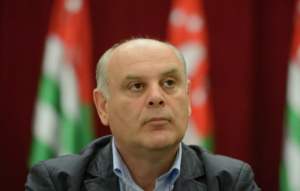
Image: Aslan Bzhania, president of Abkhazia
However, the 2020 campaign finished with no contests and protests. The key competitor of Bzhania, Adgur Ardrzinba, publicly recognized the victory of his counterpart and proclaimed his readiness to cooperate with him. The authorities and opposition have been at odds on many things, but Bzhania rules out a possibility that the previous team will be punished beyond the legal framework. This leaves a hope that the outcome of the 2020 election offers opportunities to overcome the domestic crisis.
Request for dialogue?
Nevertheless, the Abkhazian campaign has raised not only questions of the republic’s domestic developments. Aslan Bzhania, in some interviews, offered to intensify the Georgian-Abkhazian dialogue. In his view Tbilisi and Sukhum/Sukhumi– apart from the current Geneva format– need a bilateral negotiating platform to address trans-boundary issues. “Whether we like it or not, Georgians and the Georgian state are our neighbors. Whether we like it or not, we have a lot of contacts both at the level of Georgian and Abkhaz citizens. These are the people who cross the border,” Bzhania said, adding that citizens have many difficulties that should be resolved.
Does this mean principle change in the Abkhazian approaches to Georgia? Will it correspond to the Russian interests in the South Caucasus?
From the first glimpse Bzhania’s rhetoric is different from his predecessor, Raul Khajimba, who had a “hawkish” reputation, not interested in promoting dialogue with Abkhazia’s parent state. However, detailed analysis of both new Abkhazian president’s statements demonstrates irrelevance of conclusions on potential breakthrough in the process of the Georgian-Abkhaz conflict resolution as a result of changes in opinions in Sukhum/Sukhumi. First, various Abkhazian politicians have repeatedly expressed the need for dialogue with Georgia. For example, previous Foreign Ministers, Sergey Shamba and Viacheslav Chirikba, spoke publicly about this beyond the campaigns of 2019 and 2020.
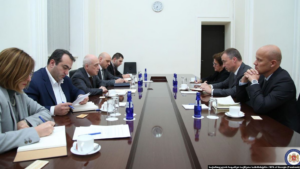
Image from Ekho Kavkaza: “Geneva talks”, a negotiation format between Georgian and Abkhazian representatives
Secondly, the previous leadership was engaged in the negotiations with Tbilisi in 1993-2006, and only the “unfreezing” of the conflict under Mikheil Saakashvili’s presidency stopped the direct contacts between the two parties. In fact, now representatives of Sukhum/Sukhumi at the “Geneva talks” (negotiation format launched in October 2008) take part in nothing other than searching for compromises. Although they do not have an official state status there, Abkhazians are meaningful participants in the negotiations. In spite of unresolved conflict and variety of political disagreements Tbilisi and Sukhum/Sukhumi jointly exploit the Inguri hydroelectric power station. Many rank-in-file Abkhazians address the Georgian hospitals in neighboring areas while de facto authorities don’t prevent them from doing it.
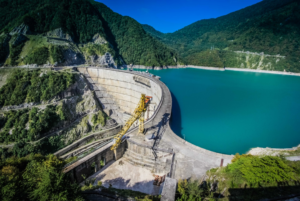
Image: Inguri hydroelectric power station in joint exploitation
Thirdly, the proposals of Bzhania and Shamba are not about joining Georgia and renouncing the Abkhaz self-declared independence. In one of his recent interviews newly elected president claims to new realities established by events of 2008. He compared the Georgia’s case with the USSR dissolution and concluded on impossibility to restore destroyed realities. “After the war, it is usually not the same things as before the war. War changes borders. Sometimes it happens that as a result of war, states disappear and new states arise,” Bzhania said. Moreover, he proclaimed Russia as a strategic partner of Abkhazia along with countries who recognize the republic’s independence.
Contacts across the conflict lines
In the above-mentioned interview, Bzhania spoke also about economic issues. Moscow has repeatedly raised the issue of opening transport corridors from Russia through the Abkhazian territory to Georgia. In many ways, Tbilisi’s consent to Russia’s accession to the WTO was “tied” to this plot. Thus, Bzhania is not inconsistent with the Russian approaches. Economic contacts on top of unresolved status problems are not just the Caucasian know-how. It is necessary to look at the situation in the Dniester or Cyprus experience.
Despite Russia’s insistence on recognizing the breakaway territories as independent states (see the Russian Foreign Policy Concept of 2016), the highest ranking officials, including President Vladimir Putin, made numerous statements concerning “mutually respected dialogue” between Georgia and the two de facto state entities. For Moscow, it is usual to reject its direct engagement in the two ethno-political confrontations labeling Georgia, Abkhazia, and South Ossetia as conflicting parties. This is why in accordance with Russia’s official discourse direct negotiations between Tbilisi, Sukhum/Sukhumi, and Tskhinval/Tskhinvali can open the way to the resolution of conflicts different from the existing status quo. Moreover, from time to time Russian deputies or experts claim that Kremlin does not have any material benefits in supporting Abkhazia and South Ossetia against Georgia, and only follows the principles of justice. It means hopes that Tbilisi, in the future, can correct its geopolitical NATO-centric approaches towards Russia, regional security, and foreign policy agenda in general. However, it is necessary to have in mind the Abkhazian proper political motivation that existed in spite of the Russian pressure of late 1990s to push the secessionist entity back to Georgia. If Moscow would, hypothetically, change its approaches to Georgia, the de facto state’s leadership could follow its previous policies.
This is why the Abkhazian request for a dialogue with Georgia does not relate to a geopolitical U-turn or can’t be explained through the prism of reconsidering of realities established in 2008. Nevertheless, both Sukhum/Sukhumi—and Moscow behind it– search some ways to pragmatize the relations with Tbilisi with no tough ties with status issues.
Author: Sergey Markedonov



